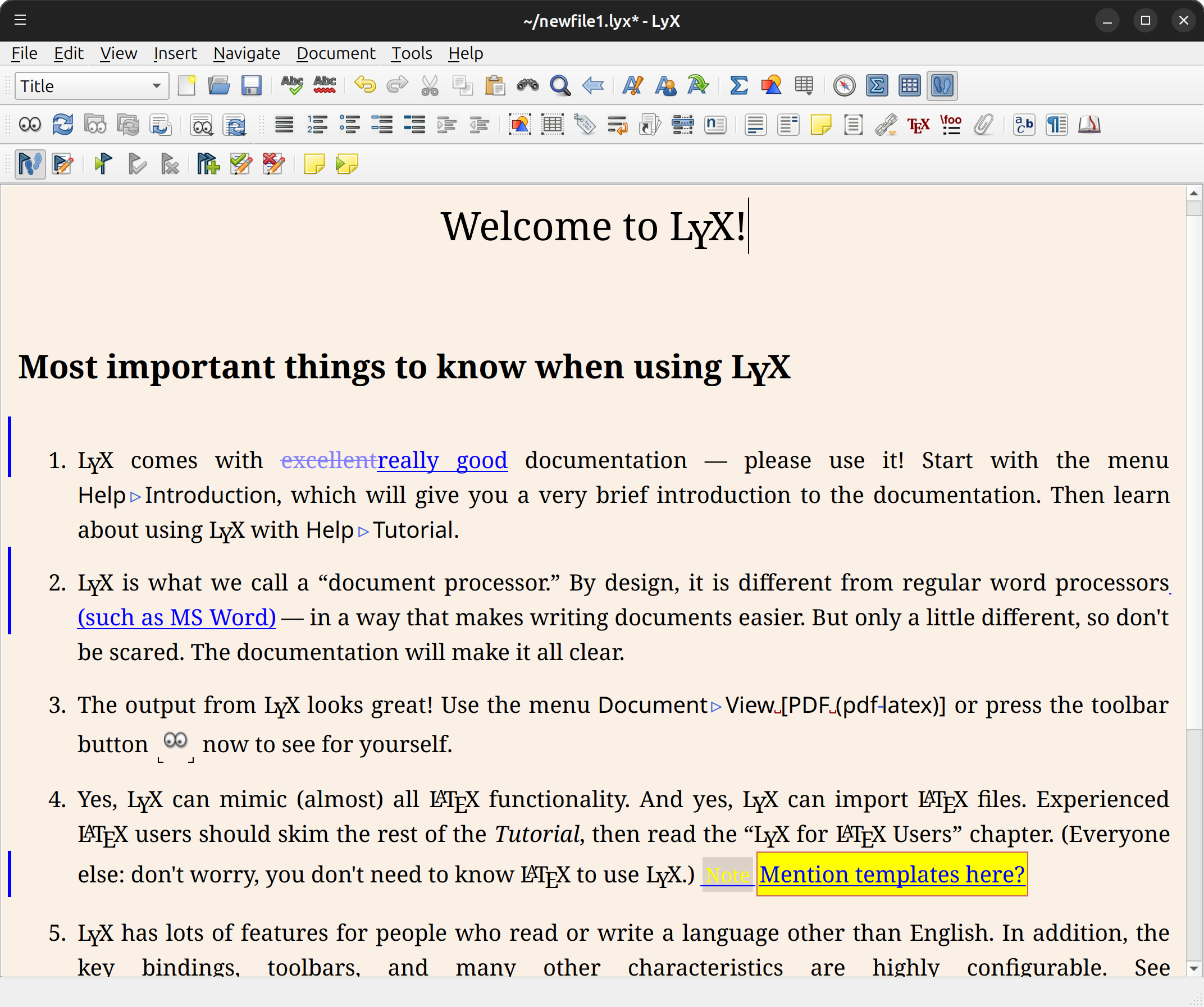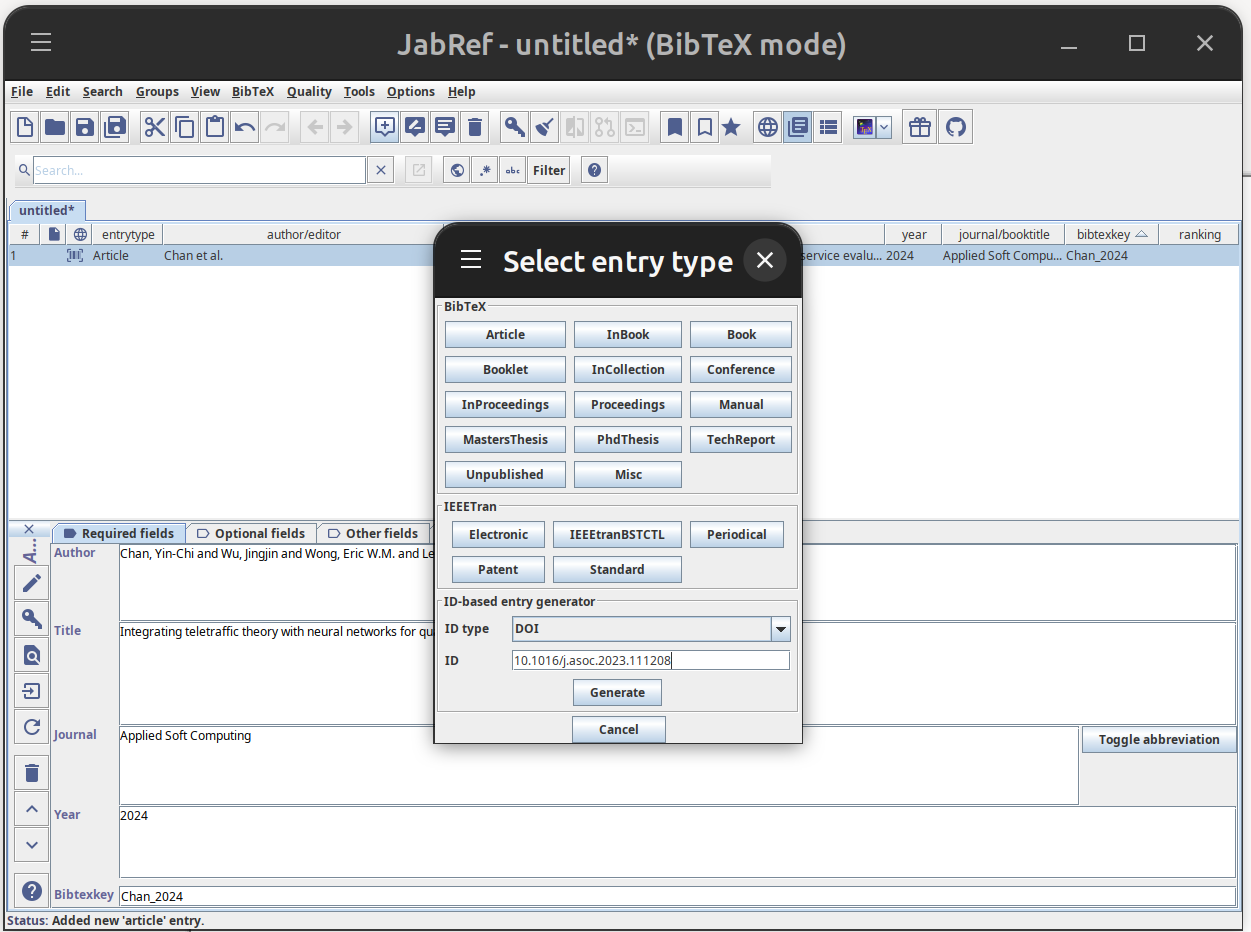Some of my favorite software
Published:
Below are some of my favorite software I use for my academic work:
LyX
A great tool for academic writing, as it can easily export to LaTeX or directly to PDF, but also provides a near-WYSIWYG (what you see is what you get) experience. A comparable example is Overleaf’s visual mode. However, LyX has a much better “track changes” user experience than Overleaf, and does not require a subscription to unlock its advanced features. On the other hand, a drawback is that it is not widely used among the academic community compared to raw LaTeX. As a result, few academic publishers have LyX templates available for preparing submissions to their conferences or journals. Noteable exceptions, however, include IEEE and Elsevier, for which the necessary .layout files are included by default.

Jabref
A citation and reference management software. One of its best features is the ability to populate a BibTeX entry given a DOI. Clicking on DOI or URL links automatically opens the link in a browser; alternatively, BibTeX entries can be linked to locally saved PDF files. However, one minor issue is that it does not always work well with display scaling on high-resolution screens.

Kroki
Consolidates a number of diagram generators, e.g. PlantUML and Graphviz, into a single web app. Interfaces for Kroki include https://niolesk.top/ and this VSCode plugin.
Obsidian
While I have not used this for long, it seems to be a good app for organising notes. Notes are stored as Markdown files. Quite a few Community Plugins are available, I have so far installed ones for rendering Graphviz and PlantUML diagrams.
